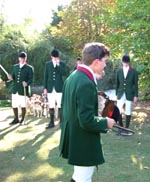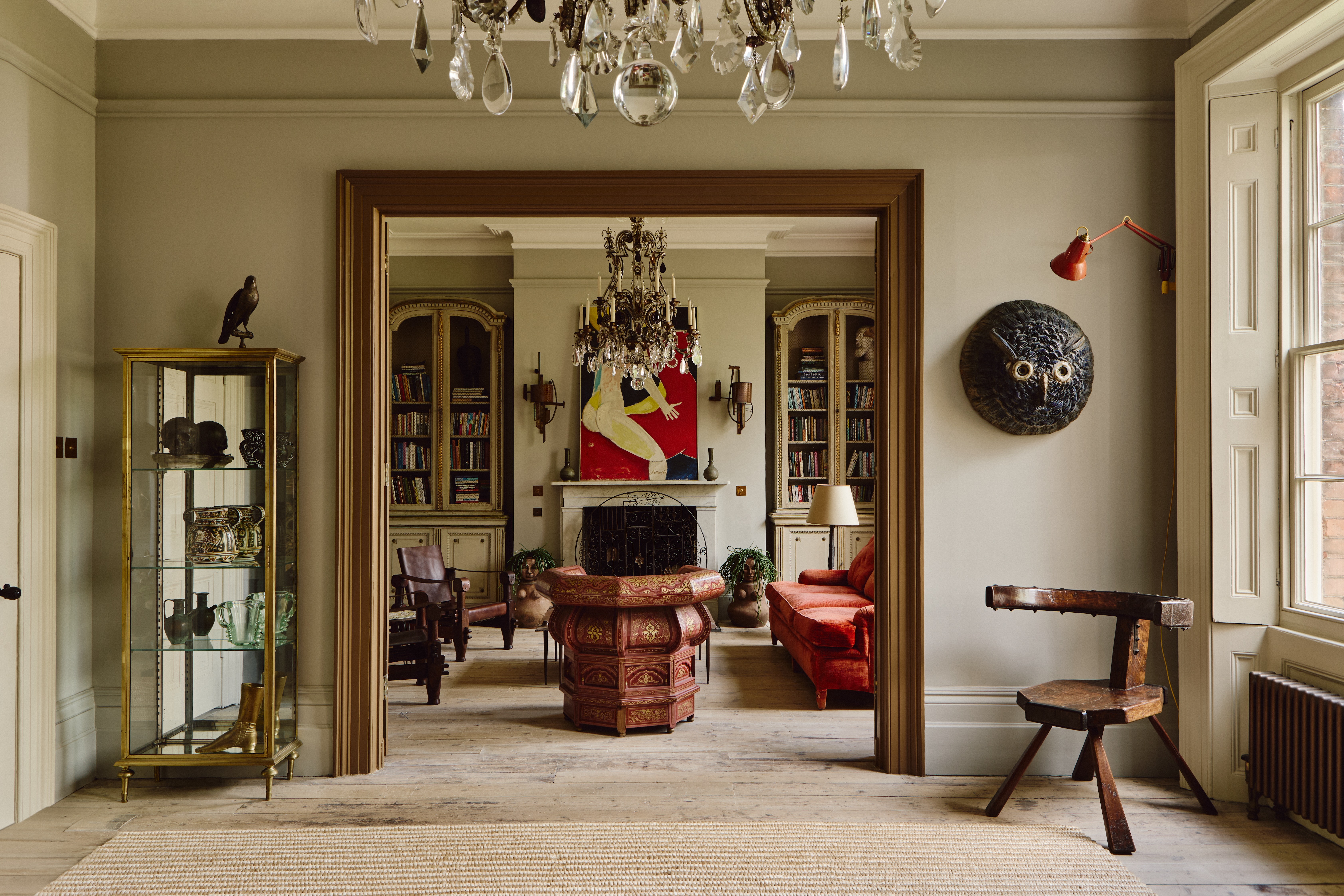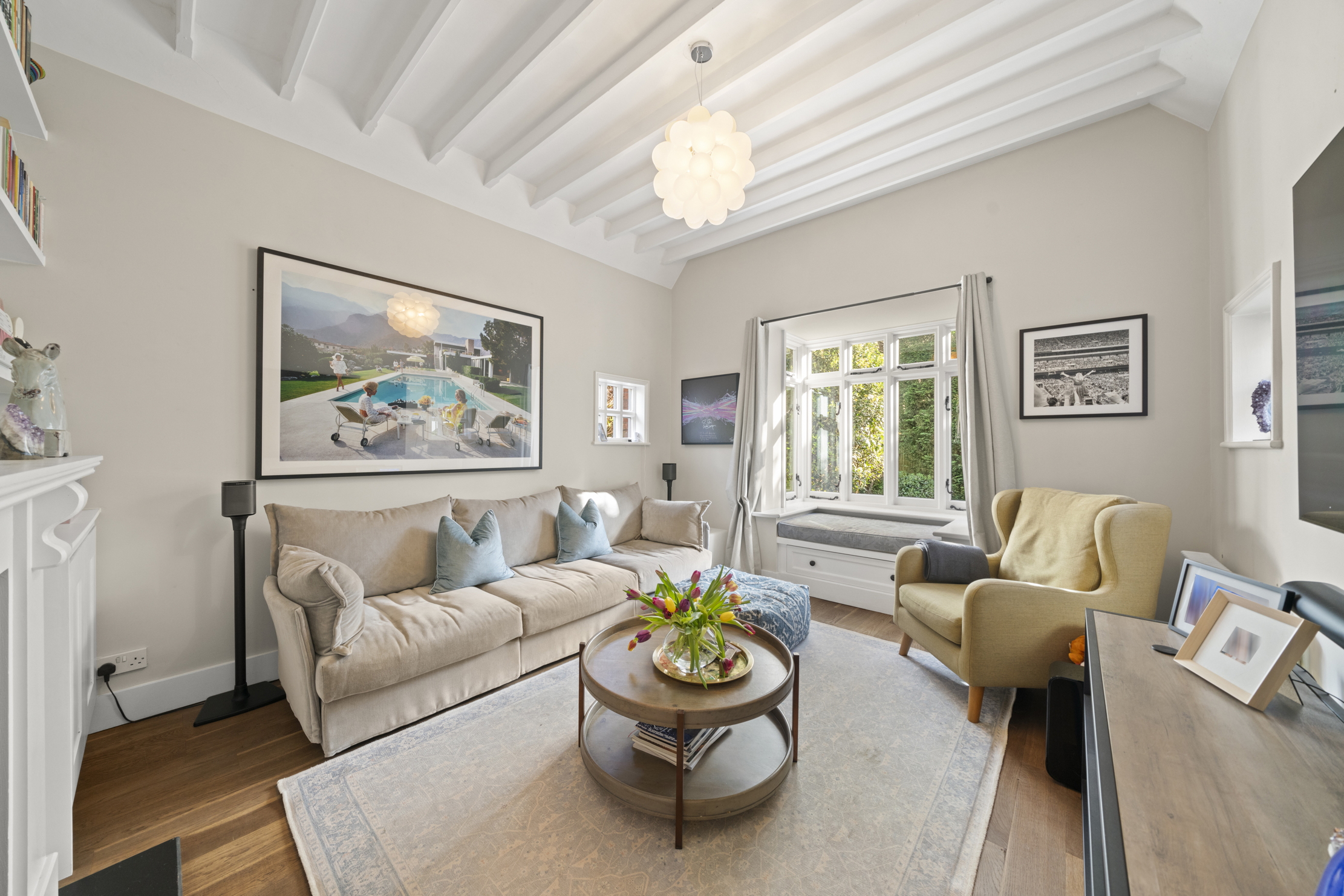The best countryside schools
The country school ethos lives on, it's not all double maths says Simon Davies


Doomsayers suggest that few schools now place an importance on country life as part of a child’s education, and recent newspaper stories listing several traditional country prep schools for sale are kindling for this pessimism. Yet, in reality, things are not quite so gloomy. For parents who wish their child’s schooling to be a happy medley of academic pursuit and climbing trees, learning about flowers, animals, birds and the seasons, there are still schools that view a knowledge of the countryside as integral to becoming a rounded individual.
Radley College in Oxfordshire is one such. ‘The Countryside Centre and the work of the Countryside Officer are of great benefit to the boys here,’ says Angus McPhail, the warden (headmaster). ‘Boys enjoy fresh air, learn the importance of round-the-clock care for our beagle pack and other animals, and benefit from their dealings with local farmers and landowners. There are great opportunities to foster a love of the outdoor life.’
It’s a love that requires nurturing from a young age, however, and there can be few better harbingers than Anne McDermott, the remarkable founder of Kitebrook House, a small prep school in the Cotswolds. She is remarkable not only because 2009 marks 50 years since Kitebrook was established, but because she only recently stepped down as headmistress, handing over to her great-niece Pippa Quarrell, a Kitebrook old girl and the former head of history at Bryanston. (Does this make Mrs McDermott the longest-standing headmistress in the history of British education?) Regardless, she has doggedly refused to compromise her belief that a child’s appreciation of the countryside is fundamental. ‘I passionately believe in a rural education, and will continue to put up a strong fight to preserve it,’ she says, when I visit. ‘This morning, I was taking prayers and we discussed snowdrops and frost. A fox ran across the lawn, so we spoke about the best way to recognise fox footprints.’
Kitebrook is in the middle of Heythrop country, and many of the girls take part in the Heythrop Pony Club camp every summer. The school also has showjumping and eventing teams. Of course, even the most romantic fans of the countryside must accept that this almost bucolic brand of schooling must be coupled with academic rigour. No one wants to see their child bought up with blinkers that will inevitably lead to parochialism. Kitebrook’s academic standards are a matter of record, as it regularly sends girls to Bedales, Downe House, Cheltenham Ladies College, St Mary’s Calne and Tudor Hall. There’s no point being able to climb a tree if you can’t spell its name.
‘Bedales has always had a strong attachment to nature,’ says headmaster Keith Budge. ‘Outdoor work shapes the Bedales environment. Students have planted hedgerows, dug lakes and built wood-framed barns.’ Bedales’ founder, J. H. Badley, believed that the school’s beautiful setting was an inspiration to its students and enabled him to educate ‘Head, Hand and Heart’. ‘It’s a blending of practical work with intellectual and spiritual development,’ Mr Budge explains. Mrs McDermott cites flaws in her own schooling as her inspiration to follow the likes of J. H. Badley. ‘I had a conventional public-school education at Sherbourne, and it simply pumped academic work into me. I left with no self-confidence.’ She trained to be a teacher under the Friedrich Froebel method. A pioneering educationalist, Froebel (1782–1852) believed that a child must follow academic pursuits and observe nature.
He was the founder of the kindergarten. Kitebrook started with nine children in 1959. ‘There were lots of riding and picnics,’ recalls Mrs McDermott. ‘We grew to a class of 21 children aged eight to 12, and I taught all subjects.’ That Hillside, Kitebrook’s neighbouring junior school in its own country house with five acres, is brimming with children is testament to the enduring popularity of the school’s ethos. ‘The children are allowed time to observe things,’ says Mrs Quarrell. ‘To look at the trees and hedgerows and listen to the birds. Such a culture of learning about animals encourages kindness and creativity. We open the doors come rain or shine, so the children become more robust and adaptable.’
Parents aren’t the only ones to acknowledge the growing popularity of schools fostering this ethos. Kitebrook has recently announced that it will now accept boys, and the school has been acquired by The Cothill Educational Trust under the directorship of Adrian Richardson, former headmaster of Cothill House, a boys’ prep school near Oxford, and the chairmanship of Lord Wakeham. The trust intends to invest heavily in Kitebrook’s infrastructure, but will ‘go out of its way to safeguard the ethos of the school’. It will build a classroom block, events hall, playing fields and science labs. The trust owns Cothill House, Mowden Hall Chandlings, and Sauveterre, a château near Toulouse that pupils visit for a term and where the countryside is regarded as integral to their schooling.
Sign up for the Country Life Newsletter
Exquisite houses, the beauty of Nature, and how to get the most from your life, straight to your inbox.
Mrs McDermott laments the fact that 90% of children now lead an urban life and know very little about natural history or the rhythms of the year. ‘I long to have masses of urban children as weekly boarders so we can try and imbue them with a sense of the country. It would be a grievous loss if generations of children did not understand it.’ She’s not alone. One of the boarding houses at Oundle School in Cambridgeshire has a water meadow and a river in its grounds.
‘The experience allows a quiet communion with nature that builds a natural instinct for conservation,’ says headmaster Charles Bush. He tells the story of how students recently visited the Wildlife and Wetlands Trust site at Welney to meet Dafila Scott, artist and daughter of Sir Peter Scott Oundle’s pre-eminent old-boy artist, conservationist and ornithologist to see the wetland haven for migratory birds.
‘The lake by our new SciTec facility has been designed so natural life will be visible from the biology labs,’ he adds. ‘The rhythms of the academic year at Bedales are punctuated with the rhythm of rural life,’ says Mr Budge. They certainly are. The lambing of the school’s Jacob ewes is timed to occur during term time. It appears that all is not lost.
Kitebrook House, Moreton-in-Marsh, Gloucestershire (01608 674350; www.kitebrookhouse.com)
Five public schools that encourage the country ethos
* Bedales, Streep, Petersfield, Hampshire (01730 300100; www.bedales.org.uk) Gardening and outdoors-work time is encouraged, and it even has its own farm
* Radley, Abingdon, Oxfordshire (01235 543000; www.radley.org.uk) Spectacular 800-acre country estate with plenty of boys who shoot and hunt regularly. Runs its own beagle pack
* Stowe, Buck-inghamshire (01280 818000; www.stowe.co.uk) Fly-fishing on the lake and beagling with its own pack
* Wellington, Crowthorne, Berk-shire (01344 444000; www.wellington- college.berks.sch.uk) Fosters sturdiness in its pupils by championing the outdoors and country life. It has a very strong shooting school
* Oundle, New Street, Oundle, Peterborough (01832 277122; www.oundleschool.org.uk) Pupils with boundless enthusiasm for outdoor life and school centered on a traditional country market town
Five prep schools that encourage the country ethos
* Ashdown House, Forest Row, East Sussex (01342 822574; www.ashdownhouse.co.uk Beautiful Georgian house with acres to rumble around in
* Brockhurst and Marlston House, Hermitage, Newbury, Berkshire (01635 200293; www.brockmarl.org.uk) Spell-binding estate with fishing and stables
* Beaudesert Park School, Minchin-hampton, Stroud, Gloucestershire (01453 832072; www.beaudesert.gloucs.sch.uk Ensures there’s an exeat during Badminton Horse Trials
* Belhaven Hill, Dunbar, East Lothian (01386 862785; www.belhavenhill.com Pupils have their own tiny garden plots to cultivate on site
* Sandroyd School, Rushmore, Tollard Royal, Wiltshire (01725 516264; www.sandroyd.org There is riding on site andan apiary is being built
Country Life is unlike any other magazine: the only glossy weekly on the newsstand and the only magazine that has been guest-edited by HRH The King not once, but twice. It is a celebration of modern rural life and all its diverse joys and pleasures — that was first published in Queen Victoria's Diamond Jubilee year. Our eclectic mixture of witty and informative content — from the most up-to-date property news and commentary and a coveted glimpse inside some of the UK's best houses and gardens, to gardening, the arts and interior design, written by experts in their field — still cannot be found in print or online, anywhere else.
-
 ‘It had the air of an ex-rental, and that’s putting it politely’: How an antique dealer transformed a run-down Georgian house in Chatham Dockyards
‘It had the air of an ex-rental, and that’s putting it politely’: How an antique dealer transformed a run-down Georgian house in Chatham DockyardsAn antique dealer with an eye for colour has rescued an 18th-century house from years of neglect with the help of the team at Mylands.
By Arabella Youens
-
 A home cinema, tasteful interiors and 65 acres of private parkland hidden in an unassuming lodge in Kent
A home cinema, tasteful interiors and 65 acres of private parkland hidden in an unassuming lodge in KentNorth Lodge near Tonbridge may seem relatively simple, but there is a lot more than what meets the eye.
By James Fisher